Lately, I've been seeing a lot of conversation about a workplace trend called "quiet quitting," where people are leaning away from overwork in search of a more balanced life.

Here's what's going on:
The trend started on TikTok and gathered steam after a video from @zaidleppelin was viewed on the platform over 3 million times. In the video, he says, "I recently learned about this term called 'quiet quitting' where you're not outright quitting your job but you're quitting the idea of going above and beyond."
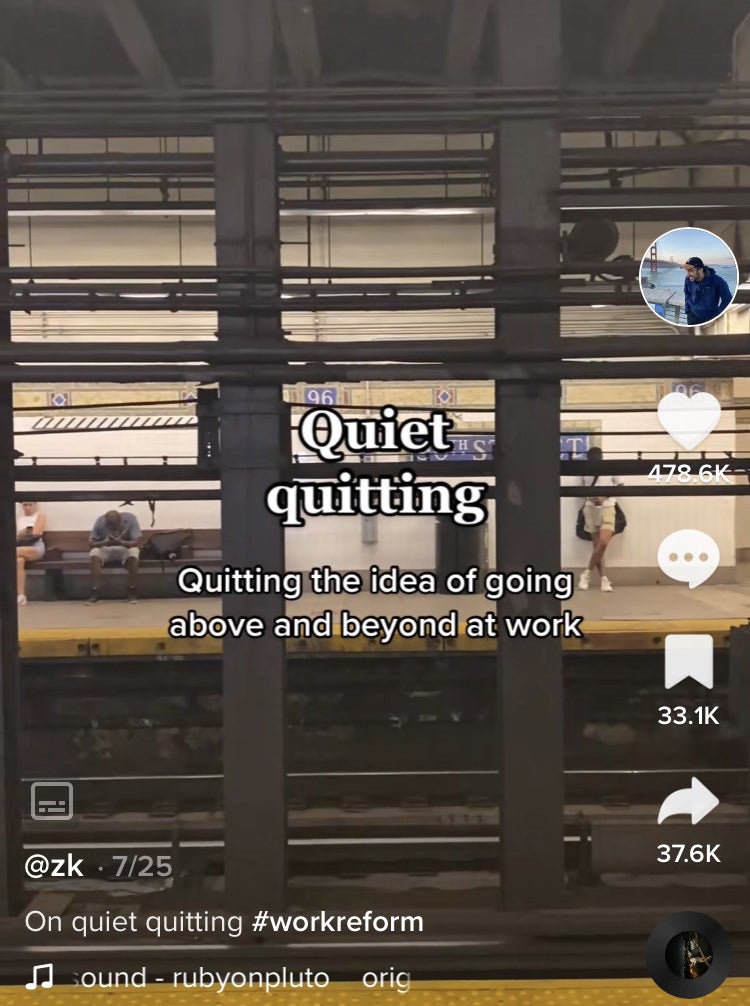
"You're still performing your duties, but you're no longer subscribing to the hustle culture mentality that work has to be your life. The reality is it's not, and your worth as a person is not defined by your labor."
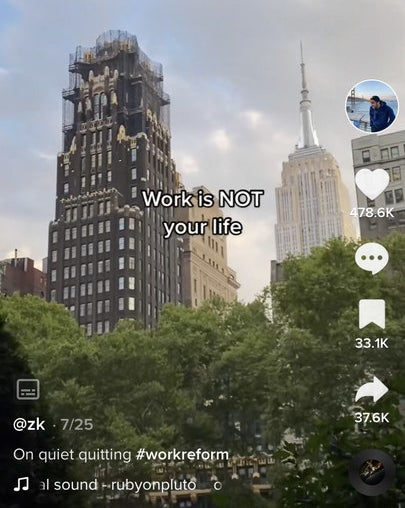
So what does this mean IRL? Maybe you stop staying late for unpaid overtime and start heading home at 5 instead. Or perhaps it means actually taking your lunch break instead of shoveling food into your face at your desk, or not checking emails at night or over the weekend. Your work still gets done, but you're more focused on taking care of yourself and having a life outside of your job.
There's a lot of conversation about "quiet quitting" on LinkedIn, where some people are feeling pretty critical about the trend. Words like "bare minimum," "lazy," and "slacking" come up a lot.
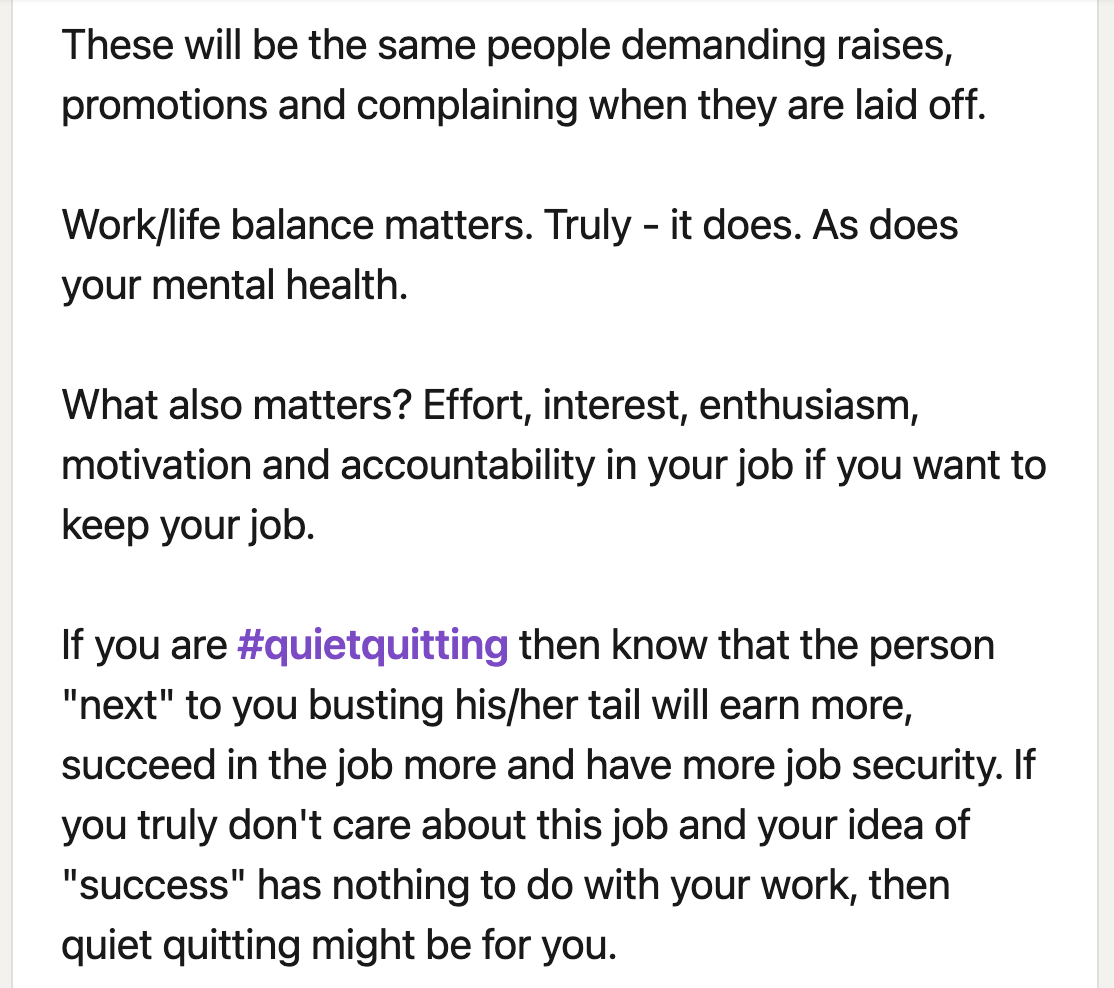
Some people feel that quiet quitting is bad for employees and companies.
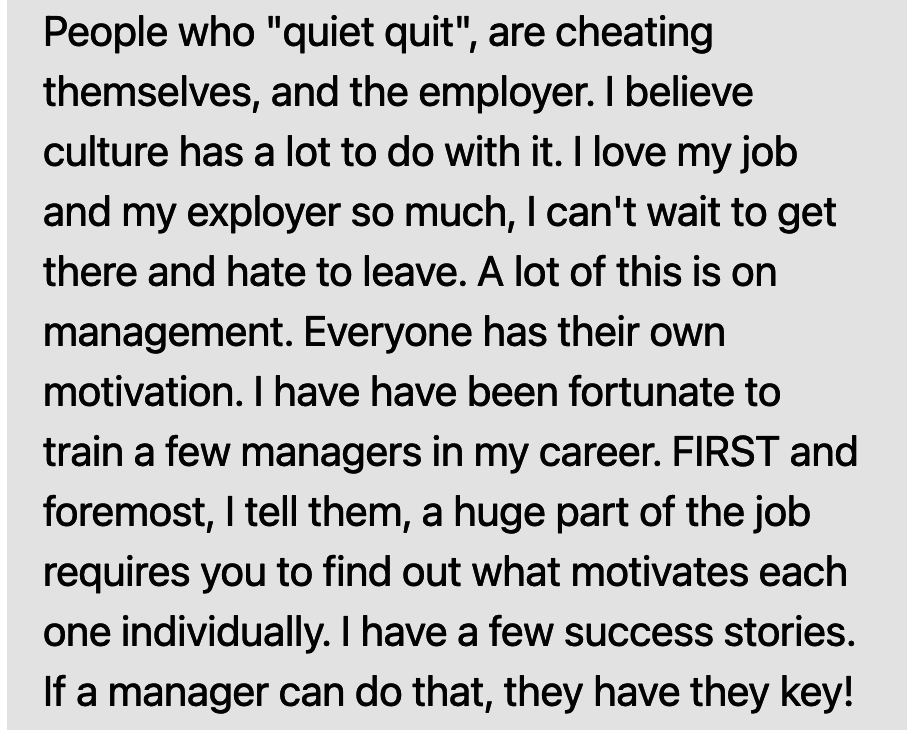
And others think it's a generational issue, and possibly poor planning if a recession is on the way.
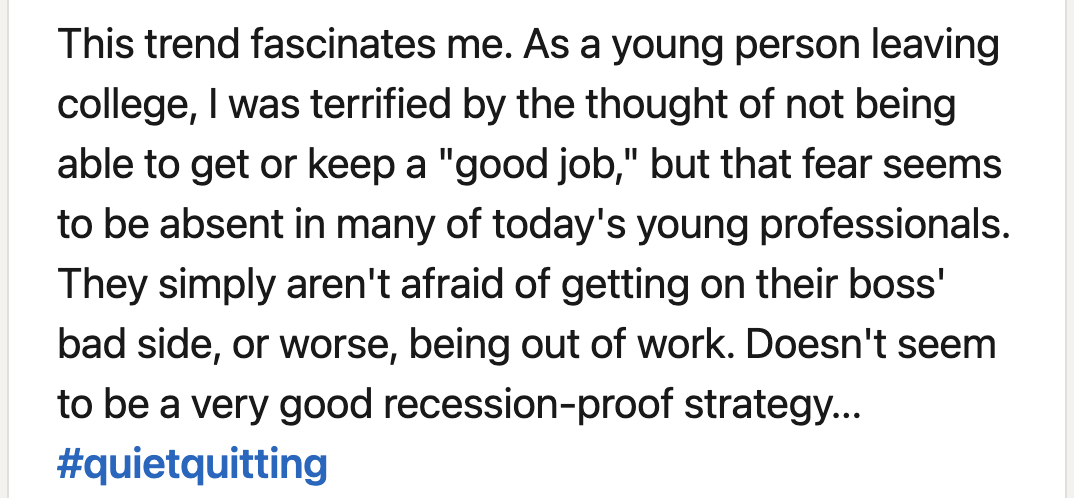
But over on Twitter, people tend see "quiet quitting" as a misnomer. It's not about goofing off or completely checking out. Instead, it's as simple as not doing more work than you get paid for. After all, wage growth has been pretty flat for literal decades even as productivity has boomed and the cost of living has gone up. People who are "quiet quitting" are just no longer willing to do extra work for free.
I still crack up every time I see a reference to "quiet quitting" because it is literally clocking in, doing your job, and clocking out. Capitalism did a number on folks that they have to do the absolute most at their jobs, stole their work-life balance and gave back nothing. https://t.co/cNEoGuAkzV
Many people are calling for new names for this phenomenon, like "having boundaries" or "doing your job during work hours."
PLOT TWIST: “quiet quitting” means “doing your job within the confines of work hours”
And some people are actively encouraging it.
- Huh, what is “quiet quitting”? *reads* - Oh. Setting normal boundaries. Working only the hours you’re paid for. Taking care of yourself. Ok. You should definitely do that.
Throughout the pandemic, workplace burnout has been a big issue. Workers are feeling tired, our cash isn't going as far as it used to, and on an individual level, people have experienced a lot of loss and trauma. With that context, it totally makes sense that people are feeling the need to pull back from the 24/7 hustle culture that permeates work in America.
I also think that a lot of articles about this trend are missing the fact that many of us go through phases in our careers. Pulling back for a bit is not the same as burning down your office and quitting forever. We can go through periods of focusing on our lives outside of work and times when work matters more to us, and that's okay. We're not machines.

And I'd argue that people working long hours and going above and beyond isn't always great for companies either. Studies have found that people working longer hours actually tend to have lower productivity because they're tired, and are more prone to make mistakes or get injured. I'm willing to bet that there are quiet quitters out there right now doing better work than their over-working counterparts.
Ultimately, whether quiet quitting (aka maintaining boundaries) is right for you depends on what's going on at your specific job, how you're feeling, and what your goals are. And if employers really want more from workers than what's in their job descriptions, that should be a sign for them to look at hiring more people or to pay their people more for the extra work.

